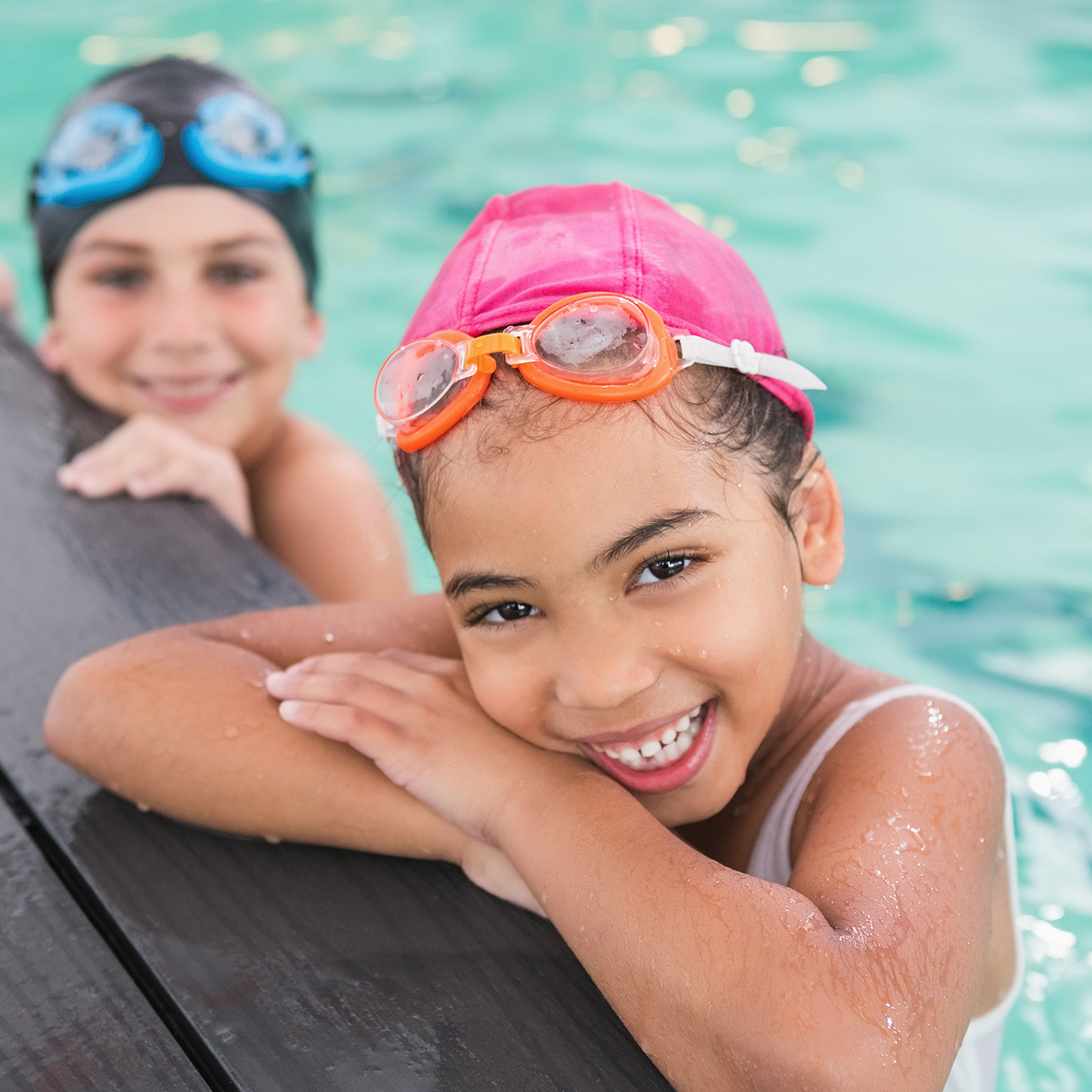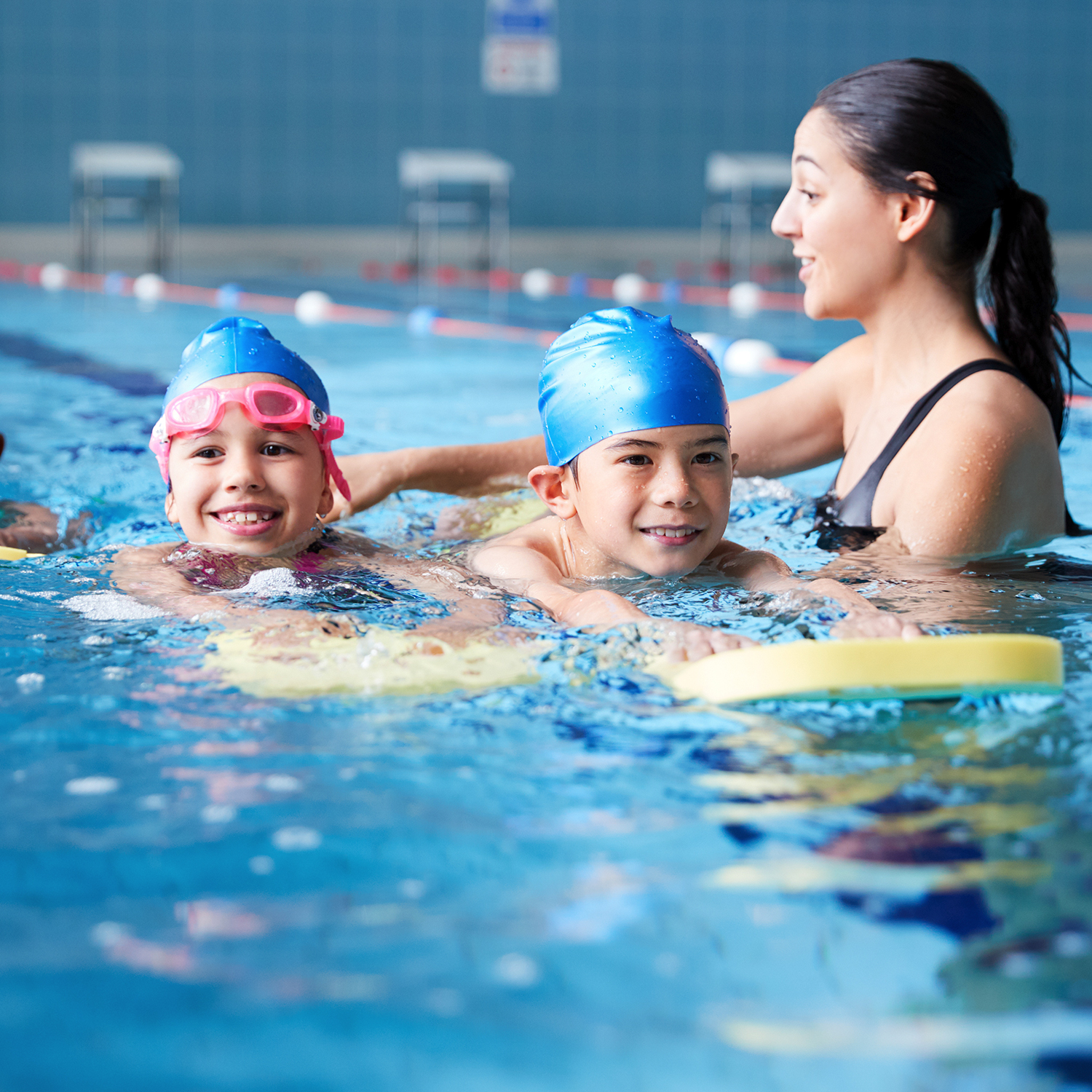Table of Contents
 Spring has sprung, and we’re all dreaming of summer fun. Community and private pools will be opening soon, and we’re planning family trips to lakes and beaches. But if children can’t swim, our favorite summer activities can become sources of stress and danger. Swim lessons are one of the greatest gifts we can give our children. According to the CDC, drowning is the second-leading cause of unintentional injury death for children ages 1 to 14. Learning to swim with a qualified instructor creates water safety awareness as part of a multi-layered strategy to prevent drowning and keep kids safe in and near water.
Spring has sprung, and we’re all dreaming of summer fun. Community and private pools will be opening soon, and we’re planning family trips to lakes and beaches. But if children can’t swim, our favorite summer activities can become sources of stress and danger. Swim lessons are one of the greatest gifts we can give our children. According to the CDC, drowning is the second-leading cause of unintentional injury death for children ages 1 to 14. Learning to swim with a qualified instructor creates water safety awareness as part of a multi-layered strategy to prevent drowning and keep kids safe in and near water.
At What Age Can Children Learn To Swim?
The American Academy of Pediatrics says many children can begin learning to swim as early as one year old. However, all children develop differently, so it’s best to talk with your pediatrician and make an appropriate plan for your child. Parent-and-child classes are an excellent way to get started for children ages 1 to 4. The AAP calls swim lessons “a must” for most children 4 and up. Most children are ready to learn basic water survival skills by their fourth birthday. And by kindergarten, most have the motor skills to start learning basic strokes.
The AAP does not recommend infant swim classes for water safety programming. Infants are not old enough to learn water safety skills and often cannot lift their heads out of the water. However, classes for parents and babies can help little ones get used to the water and bond with caregivers.
What Is The Best Way For My Child To Learn To Swim?
Many families start with parent-and-child classes for toddlers and preschoolers. It’s an excellent way to get children used to the water with the comfort of a parent by their side. If you find your child hanging on to you and being more resistant to this new environment, try having a trusted friend take your place for the lessons and disappear from view during this time. By age 3 or 4, many children are ready for small-group learn-to-swim classes. Find a course with trained instructors and a nationally recognized learn-to-swim curriculum (Red Cross or similar). There should also be certified lifeguards on duty in addition to instructors. The best programs offer multiple sessions and a series of progressive classes that help children build skills and confidence. As children get a bit more proficient, check out local or community summer swim teams. This is a fun way to develop their skills in a team environment.

When Can I Take My Baby In The Water?
We often get questions from parents of newborns about taking infants into the water. It’s best to wait a few months before taking your baby in the water. Waiting until babies are 4 or 5 months old is advisable. In swimming pools, we’re primarily concerned about chemicals and contaminants. Exposure to chlorine can be harmful to young infants. Public pools also contain contaminants (including fecal matter) that can be too much for babies’ developing immune systems. We also recommend waiting until your baby can hold her head up before taking her into the ocean, lakes or rivers. Watch for local water advisories to ensure that water quality is healthy for little ones. Of course, keep infants and young children in the shade and use appropriate sunscreen when spending time outdoors. Finally, choose a beach or lake with lifeguards whenever you’re swimming with kids.
Swim Lessons As Part of A Multi-Layer Water Safety Plan
Learning to swim makes summer activities more fun for kids. While good form is a bonus, water safety is the most critical part of learn-to-swim lessons. However, as the AAP puts it, swim lessons don’t make your child “drown-proof.” Learning to swim is part of a multi-layer process that includes adult supervision and preventing pool access during non-swimming times. Parents should stay within arm’s length of children under 5, and most children require adult supervision until at least age 12. For teens who are competent swimmers, it may be safe to allow them to swim at a lifeguard-supervised pool without parent supervision. However, it’s essential to be aware of individual facility rules, and no one should ever swim alone at any age.
At Loudoun Pediatric Associates, our providers are happy to discuss whether your child is ready for swim lessons. When kids learn to swim, it can help them safely enter a world of fitness and fun. With parents as partners, we can help keep kids safe while having a blast.







